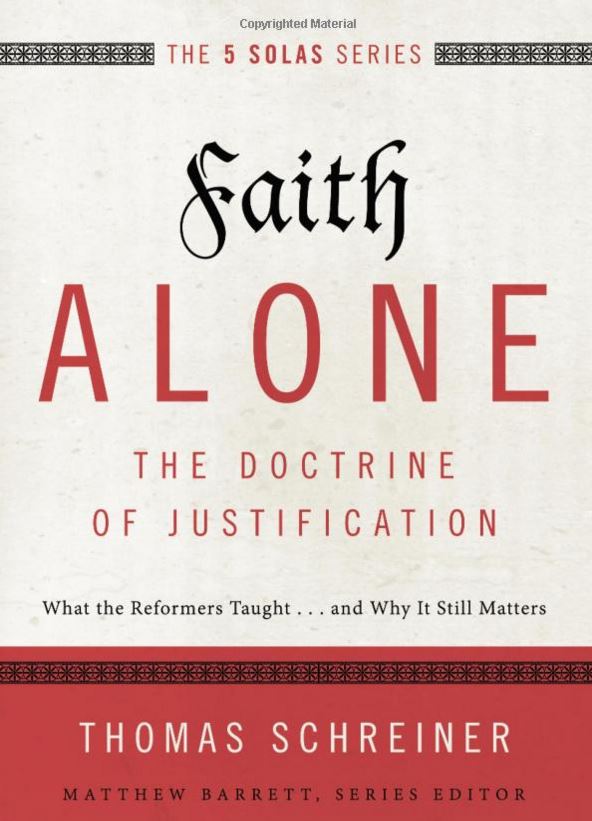
LOUISVILLE, Ky. (BP) — It’s been nearly 500 years since the start of the Protestant Reformation and the doctrine of justification is just as important as ever, writes Thomas R. Schreiner in “Faith Alone.” Treasured doctrines of the Reformers like justification and imputation are still worth defending, despite criticism from Catholics and evangelicals alike.

In recent years, scholars have raised numerous arguments against key Protestant theologies: Douglas Campbell’s critique of “justification theory,” Roman Catholic Frank Beckwith’s synergistic understanding of salvation, and the New Perspective’s criticism of the doctrine of imputation. These doctrines not only remain thoroughly biblical, Schreiner said, but pastorally vital.
“Pastorally, it’s of huge comfort to people,” Schreiner said during an interview about the book, released Sept. 15. “Because when we stand before Christ, if we need a perfect righteousness — and I think we do — then it’s only going to come from the righteousness of Christ that’s credited to us, counted to us.”
Despite attempts from both Catholics and evangelicals to find common ground, Schreiner said as long as Catholic teaching about the doctrine of justification remains unchanged, the Reformation must continue. As long as Catholic doctrine affirms the Council of Trent, during which the Catholic Church condemned key teaching of the Reformation, reconciliation remains impossible.
When the ecumenical statement “Evangelicals and Catholics Together” released in 1999, Catholic scholar Richard John Neuhaus countered evangelical criticism of the document by writing justification wasn’t important enough to cause schism. Schreiner said that begs the question, since Protestants from the beginning have claimed justification is critically important. Other attempts at unity are no more successful in Schreiner’s eyes.
“It’s fine to be ecumenical if you don’t compromise the truth,” Schreiner said. “I’d be more than pleased if the Roman Catholics today were to say that the Protestant view of justification is right, but they don’t say that. The catechism of the Catholic Church is the same understanding of justification, as far as I can see, as you see at the Council of Trent. If there’s going to be any compromise, it’s going to come from the Protestant side, and that’s the worry.”
Although Catholics will appeal to the book of James to prove false Protestantism’s justification doctrine, Schreiner argues James is criticizing a faith of “intellectual assent.” There’s a difference between a “claiming faith” and genuine faith, Schreiner said, which is verified by attendant good works. Only a faith proven by works is true faith.
“True faith alone saves, since our works can’t contribute and God demands perfection,” Schreiner said. “Faith has a richness and depth to it that leads to actions.”
Schreiner has an expansive corpus including commentaries on Romans and Galatians, a biblical theology, a New Testament theology, and numerous books on Paul and the Law. This work presented a different challenge, Schreiner said.
“I did a lot of history in this book,” he said. “That’s not my area. So there’s a recognition when you write a book like this that you can’t defend everything and you’re dependent upon other, more in-depth, scholarly resources. That’s fine, but it’s a different kind of project.”















